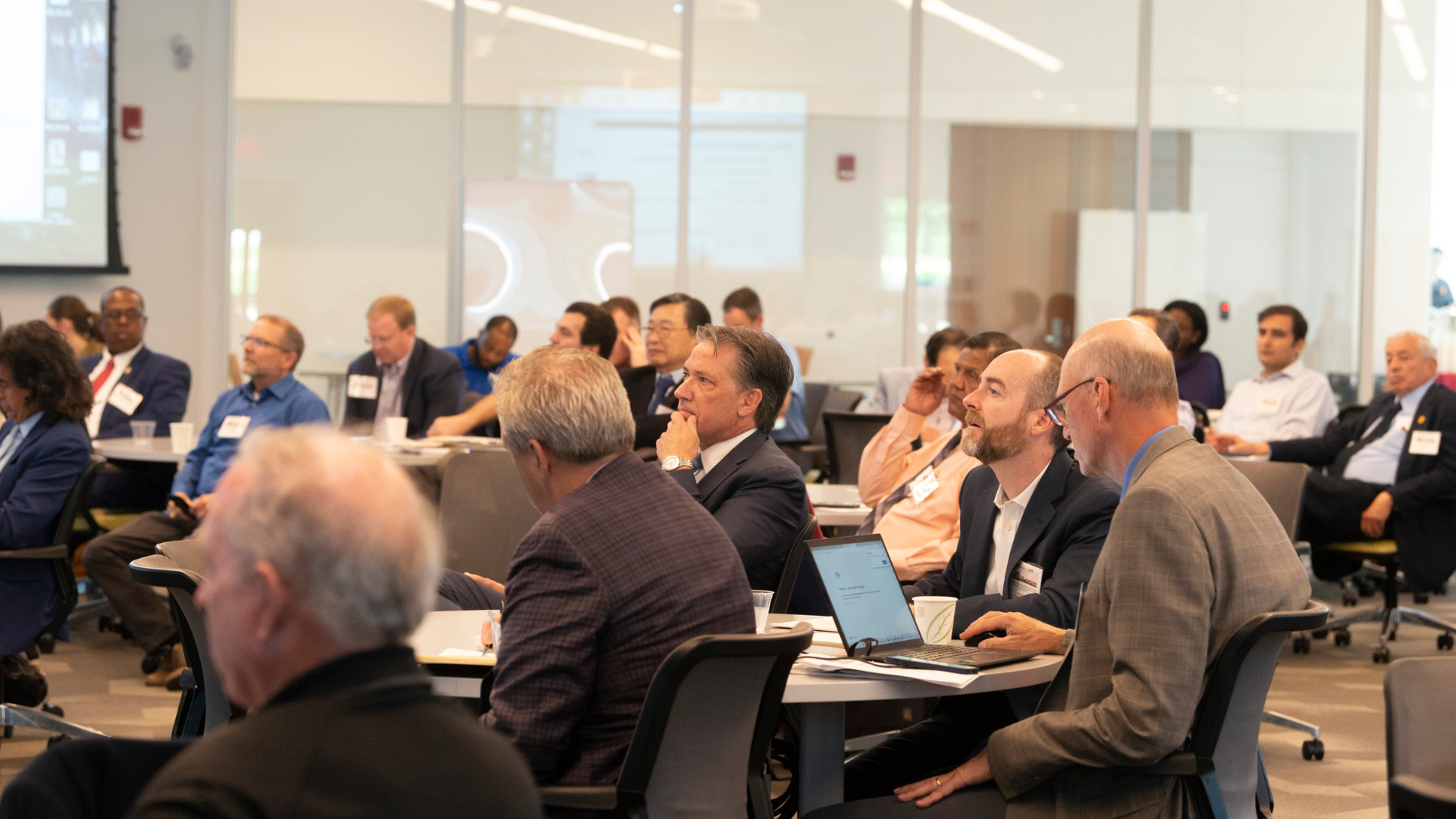On May 22, 2024, Build America Center (BAC) researcher Samuel Labi joined a distinguished panel of speakers on “Lessons Learned from the Key Bridge Collapse – Enhancing Resilience in Critical Infrastructure Systems,” at the University of Maryland (UMD). The event was hosted and organized by Nii Attoh-Okine (Professor, UMD’s Department of Civil & Environmental Engineering) and the American Society of Civil Engineers (ASCE), with support from the Dean of the UMD School of Engineering (Samuel Graham) and the VP for Research (Greg Ball). The slate of distinguished speakers included four NAE members: Chris Hendrickson, Craig Philip, Azad Madni, and Victor Lawrence, as well as Norma Mattei, former ASCE president and current member of the National Infrastructure Advisory Council, which directly advises the president of the United States.
The subject of the roundtable was the collapse of Baltimore’s Francis Scott Key Bridge, which fell after it was struck by the container ship Dali on March 26, 2024. This disaster not only caused significant damage to the bridge but also led to a major disruption in the region’s transportation network. The bridge, a critical link for commuters and freight traffic, was a vital artery for the Port of Baltimore, one of the busiest ports on the East Coast.
Professor Samuel Labi spoke on transportation lessons and solutions associated with the disaster, including the road user cost associated with post-disaster detours and the costs of bridge reconstruction. He emphasized the importance of incorporating resilience into infrastructure planning and the need for rapid response mechanisms to minimize disruption.
The Port of Baltimore handles a significant volume of containerized cargo, automobiles, and other goods essential to the regional and national economy. With the Key Bridge out of commission, alternative routes quickly became congested, leading to delays in the supply chain. Businesses reliant on timely deliveries faced increased costs, and some manufacturing operations experienced temporary shutdowns due to parts shortages. The economic ramifications extended beyond immediate logistical challenges, affecting local employment and economic stability.
The collapse highlighted vulnerabilities in infrastructure systems and underscored the critical need for investment in maintaining and upgrading aging bridges and other transportation assets. The panel discussed the broader implications of such infrastructure failures and the strategies that can be employed to enhance resilience. These include better predictive maintenance, the use of advanced materials, and the integration of smart technologies to monitor structural health in real-time.
The event served as a call to action for policymakers, engineers, and stakeholders to prioritize infrastructure resilience and sustainability. The insights and recommendations from this discussion aim to inform future projects and policies, ensuring that critical infrastructure systems are better equipped to withstand and recover from unforeseen events.



